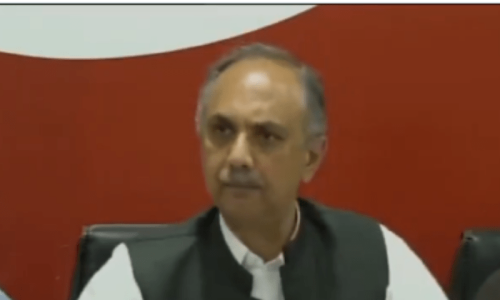IN the midst of an economic and political maelstrom, a fresh crisis threatens the availability of drugs in the market, as around 40 pharmaceutical firms have warned that they may halt production within a week due to a number of compounding factors. The key reason behind this crisis is the country’s dire financial situation, which has now begun to affect even the basic necessities of life, piling further misery on that hapless creature known as the common man. In a communication sent to the relevant state officials, including the health ministry and the Drug Regulatory Authority of Pakistan, the pharma manufacturers say they are unable to import raw material for drugs, while due to their inability to raise medicine prices, they are facing severe issues in meeting the cost of production. Industry leaders say dollars are not available, containers are not being cleared while the rupee’s freefall against the dollar has made production and transportation costs shoot up. These are familiar plaints emerging from all sectors; yet with the pharma industry, the issue becomes particularly sensitive, and can mean the difference between life and death. Health officials have promised to prevent a shortage of medicines, and it is hoped these assurances are translated into action with alacrity.
This is not the first time the threat of a medicine shortage has emerged. In fact, this crisis has been brewing for several months. Last year, there was a shortage of several essential drugs, as well as of paracetamol brand Panadol, for mostly the same reasons. Although the economic crisis is acute, the state needs to include the pharmaceutical industry amongst those sectors that must have priority access to dollars, while the shipments waiting at ports need to be cleared immediately. In the longer run, to prevent these cyclical crises, deregulation of drug prices, apart from those of life-saving drugs, must be considered. While profiteering cannot be allowed, it is also true that manufacturers cannot be expected to produce medicines at a loss. High drug prices are problematic, but non-availability is equally troubling. And while the removal of subsidies may be what the IMF wants, efforts need to be made by the state to provide highly subsidised or even free quality medicines through government hospitals to the poorest and most vulnerable segments, especially considering the effects of the merciless inflationary storm.
Published in Dawn, February 8th, 2023













































Dear visitor, the comments section is undergoing an overhaul and will return soon.